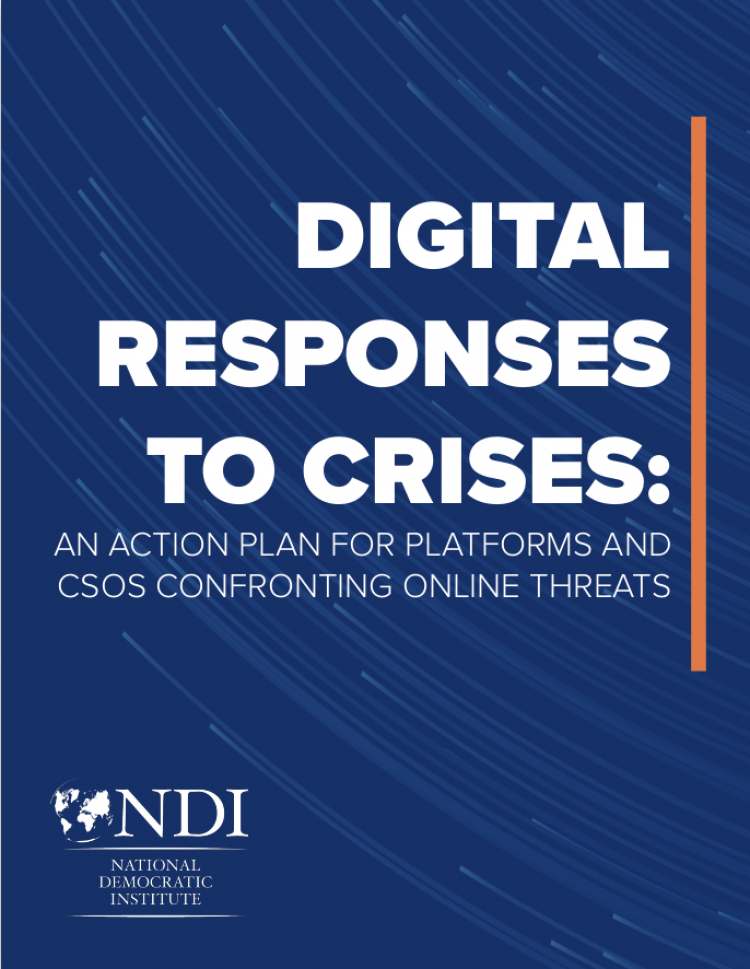Digital Responses to Crises: An Action Plan for Platforms and CSOs Confronting Online Threats
Swift access to trustworthy information is critical for first responders, governments, and the general public during crises and other critical democratic moments. However, crises often present unique and heightened risks to the information space. During recent crises like Russia’s invasion of Ukraine, the Tigray War in Ethiopia, and the Taliban takeover of Afghanistan, for example, information manipulation, hate speech, and other malicious online content have shaped and exacerbated armed conflict and civil unrest.
Technology companies that own and operate social media platforms have a significant role to play in protecting vulnerable users and the integrity of information during crises. Despite quicker and more efficient platform responses during some of these crisis moments, NDI has observed that learned best practices are seldom implemented beyond high-profile incidents, and rarely outside of Europe, the United States, and other high-value markets.
To address gaps in platforms’ current approaches to crisis response, NDI identified a range of actions technology companies can take before, during, and after a crisis to minimize online harms and facilitate access to accurate information. These recommendations are drawn from research into best practices, as well as feedback from civil society, government, and industry stakeholders. Examples include:
-
Hiring staff with local expertise and language skills in regions likely to be impacted by crises
-
Providing heightened monitoring and support to accounts of vulnerable groups and individuals
-
Creating systems to allow vetted partners to flag content (such as evidence of human rights abuses) for potential preservation
-
Establishing channels for communication between industry, civil society, and government
By adopting relevant recommendations from this action plan and collaborating with civic partners, technology companies can enable greater protection for their users at times when they need it most.
